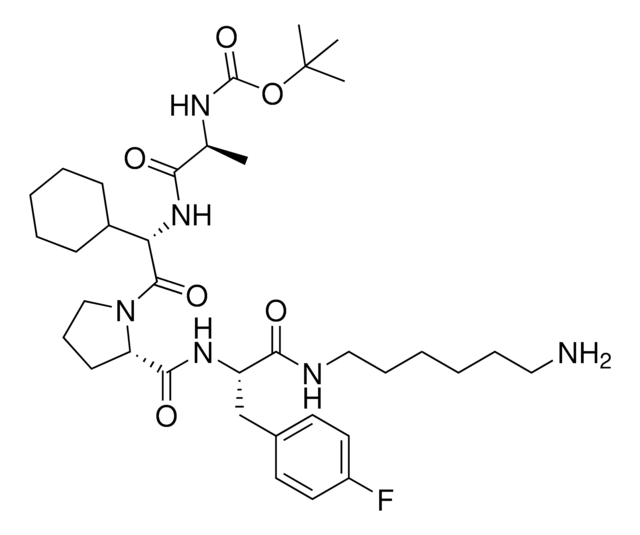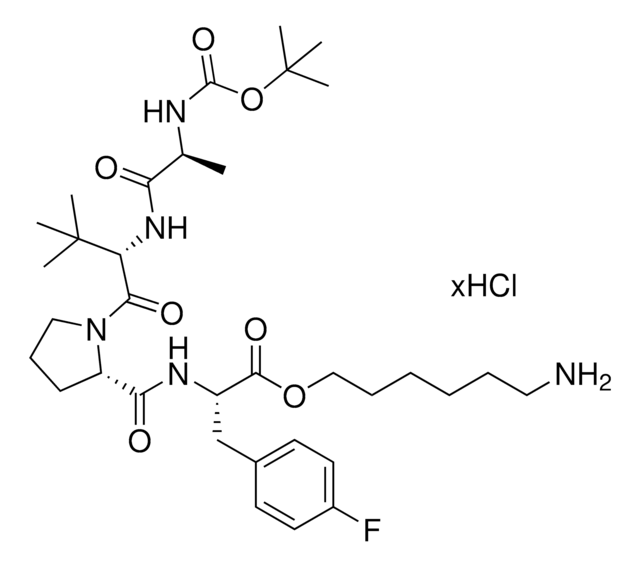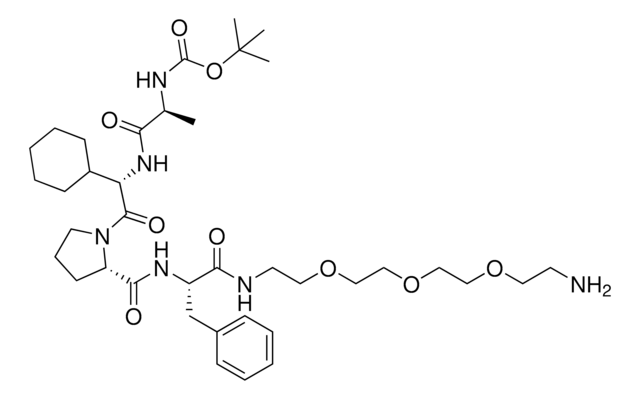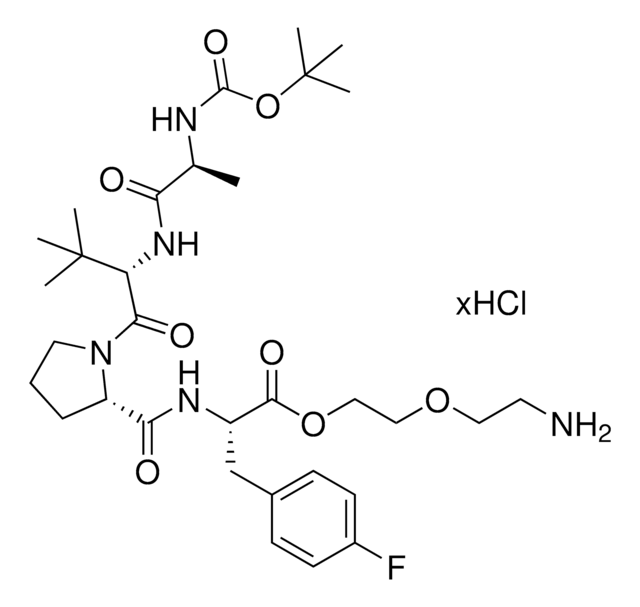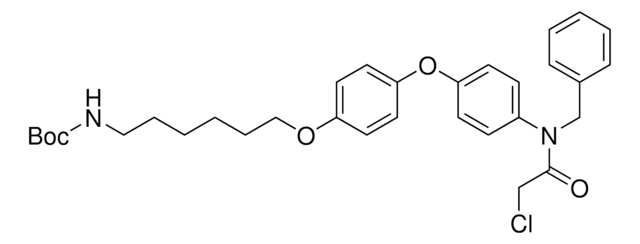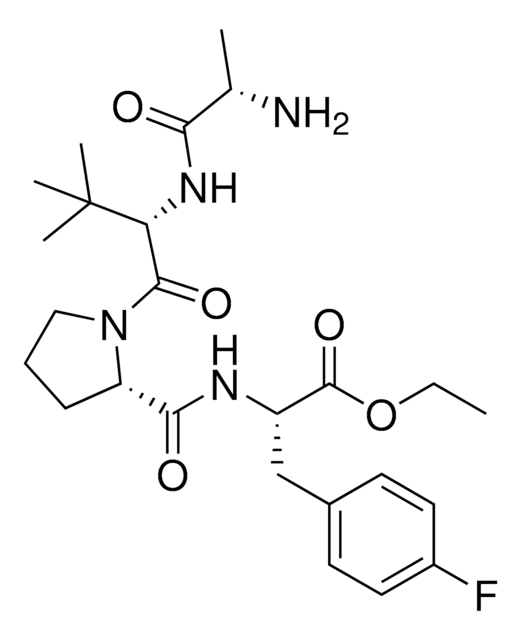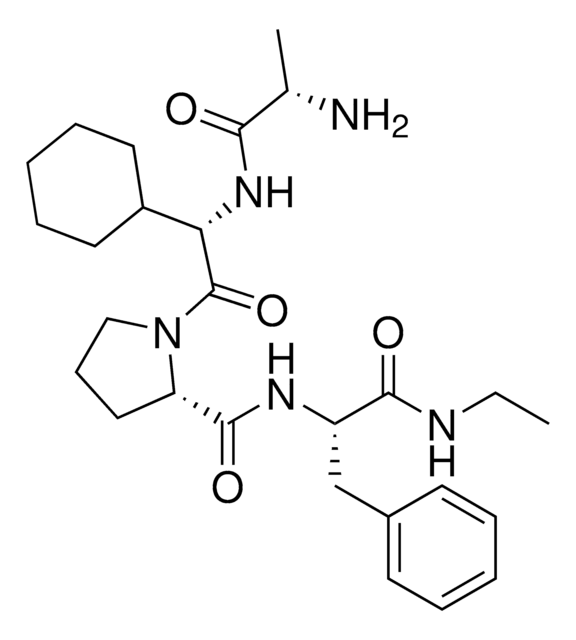917931
A1V2PF2-NHEt-C6-NH2
Synonym(s):
(S)-1-((S)-2-((S)-2-((6-Aminohexyl)amino)propanamido)-2-cyclohexylacetyl)-N-((S)-1-(ethylamino)-3-(4-fluorophenyl)-1-oxopropan-2-yl)pyrrolidine-2-carboxamide, AVP conjugate for IAP-mediated protein degrader development, SNIPER building block
About This Item
Recommended Products
ligand
A1V2PF2
Quality Level
form
powder
reaction suitability
reactivity: carboxyl reactive
reagent type: ligand-linker conjugate
functional group
amine
storage temp.
2-8°C
SMILES string
C[C@H](NCCCCCCN)C(N[C@H](C(N1CCC[C@H]1C(N[C@H](C(NCC)=O)CC2=CC=C(C=C2)F)=O)=O)C3CCCCC3)=O
Related Categories
Application
Building blocks in this series:
916714 A1V2PF2-NHEt
917931 A1V2PF2-NHEt-C6-NH2
916684 A1V2PF2-NHEt-C10-NH2
916935 A1V2PF2-NHEt-PEG1-NH2
917192 A1V2PF2-NHEt-PEG3-NH2
Technology Spotlight: Degrader Building Blocks with Inhibitor of Apoptosis Protein (IAP) In Silico-Derived Ligands
Other Notes
Legal Information
related product
Storage Class Code
11 - Combustible Solids
WGK
WGK 3
Flash Point(F)
Not applicable
Flash Point(C)
Not applicable
Choose from one of the most recent versions:
Certificates of Analysis (COA)
Sorry, we don't have COAs for this product available online at this time.
If you need assistance, please contact Customer Support.
Already Own This Product?
Find documentation for the products that you have recently purchased in the Document Library.
Articles
Targeted protein degradation (TPD) is an emerging strategy that uses small molecules to hijack endogenous proteolysis systems to degrade disease-relevant proteins and thus reduce their abundance in cells.
This product is a plate of 80 ligands against the E3 ligase IAP The ligands were designed by ComInnex using a computational approach. Linkers can be added to these ligands allowing attachment to target ligands to create bifunctional targeted protein degraders. The ligands can also be used to discover molecular glues that bring together the IAP E3 ligase and a target.
Protein Degrader Building Blocks are a collection of crosslinker-E3 ligand conjugates with a pendant functional group for covalent linkage to a target ligand.
Our team of scientists has experience in all areas of research including Life Science, Material Science, Chemical Synthesis, Chromatography, Analytical and many others.
Contact Technical Service
